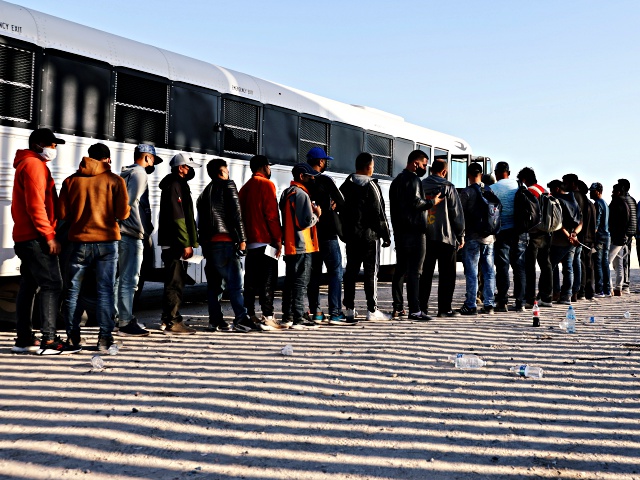
House Republicans are hammering out their differences over spending plans for 2024 while Democrats and the media blame them for the looming shutdown caused by the establishment’s unpopular demands for more migration and the war in Ukraine.
The House is preparing to vote as soon as Tuesday on individual spending bills for the next fiscal year, despite little time to consider — much less pass — each of the 12 bills comprising federal government discretionary spending before the September 30 deadline.
Republicans are hopeful that showing some momentum may restore some of the House’s dwindling leverage over the Senate, which has yet to pass its own appropriations bill but appears set to pass by the weekend a continuing resolution (CR) for current funding levels through mid-December — with additional aid requested by the White House, mostly for Ukraine.
The tactics Republicans are using in the Rules Committee — whose operations are largely unknown beyond Beltway insiders — are wonky, but the strategy may be sound.
Most bills considered under regular order on the House floor are governed by a rule crafted by the Rules Committee. These rules generally lay out parameters for debate on the bill as well as the permissibility of amendments, but the powerful committee is given wide latitude, even possessing the ability to gut the text of the underlying bill.
Republicans stuck a provision inside the rule for the bill funding the Department of Homeland Security, instructing the House to withhold the funding bill — after its hypothetical passage — until the Senate passes H.R. 2, a House border security bill passed earlier this year. If successful, House Republicans would give the Senate a choice easily understandable to the American public: send a House-approved border security bill to the president’s desk or block a House effort to fix the border and work towards preventing or ending a shutdown.
The gambit could paint the Senate as the obstructionist, recalcitrant branch, a contrast with the media’s portrayal of House Republicans of late. And it shrewdly leverages the border issue, long a Republican messaging advantage, as the level of the immigration crisis has risen to the point that reliable liberal allies in Democrat strongholds like New York and Massachusetts are begging for a reprieve.

Immigrants wait to board a U.S. Border Patrol bus to be taken for processing after crossing the border from Mexico. (Mario Tama/Getty Images)
While the Senate’s red line for a funding bill has been the inclusion of aid for the Ukrainian war effort a hemisphere away, many Republicans are reiterating their demands for using the funding battle to address the border crisis. Rules Committee member Rep. Chip Roy (R-TX), a member of the House Freedom Caucus who helped negotiate the border security spending-infused CR dashed last week by a handful of Republicans, has been urging his colleagues to make the border their priority in the spending fight. “Why would we sign another check to DHS to continue to not do its job?”
Roy, whose negotiations on the CR display a willingness to get to yes that some of his Republican counterparts may lack, nonetheless is adamant on using this fight to advance conservative border security priorities. “If the Senate and the President continue open border policies, then the House will not move a DHS appropriations bill. Texans are done. We are over it. No matter what happens before this is all over, border security needs to get done. Period. Full stop. No security, no funding,” he said.
The border has reached crisis levels that could boost House Republicans who are anxious to turn the tables after weeks of frustration. Customs and Border Protection sources claimed Monday there were approximately 11,000 migrant encounters at the southwest border in the last 24 hours marking the “single highest day in recent memory.” Stephen Miller, architect of former President Donald Trump’s immigration policy said Monday that we had seen “arguably the single worst 24-hour period for illegal immigration in history—for any country.”
This is arguably the single worst 24-hour period for illegal immigration in history—for any country. House and Senate conservatives must unite to stop all funding for Biden’s mass resettlement and relocation. https://t.co/osxESTTMxy
— Stephen Miller (@StephenM) September 25, 2023





